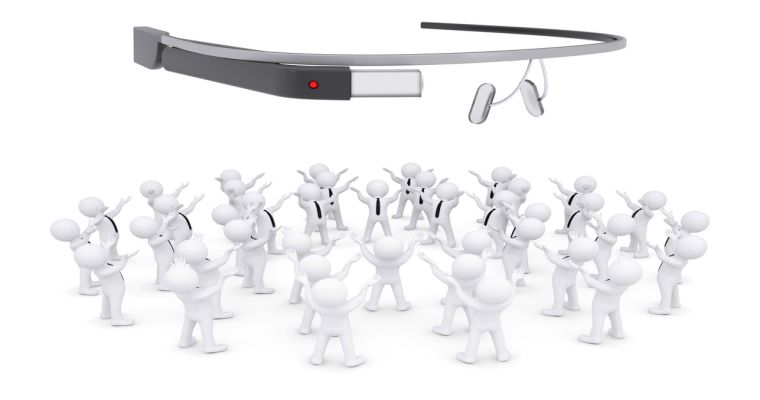Social media interaction is in a constant state of evolution. Traditionally, progress has been limited to text-based interactions or static video; however through Google+ Hangouts, users are given the ability to ditch asynchronous social media interactions for real-time communication that delivers the ability to see the audience blink, follow hand and body gestures, eye movements and facial expressions. [pullquote]With Glass, expect commonalities to be out in the open, paving the way for apps to display information on an individual, your mutual connections and any common ground that could be useful in opening a conversation.[/pullquote]
Characteristics like these, only available through platforms that offer real-time, face to face communication, have triggered a shift in traditional social media to a new layer that I call Human Media.
The profound effect of shifting from social media to Human Media inspires raw conversation for a deep level of interaction and understanding of user opinions and feelings. And with the introduction of Google Glass, users are given the possibility of connecting to people and surroundings on a whole new level.
Increased Human Media Interaction
Even with the numerous other group video-chat services, Hangouts are the life-breath of Human Media. Hangouts are scalable, further allowing interaction with multiple parties in real-time while broadcasting to the masses. Glass will be no different.
Glass, mixed with the technology of Hangouts, poses a new reality of improved transparency, in-depth customer service or a customized DIY portal.
Charitable organizations and business have the potential to display firsthand the impacts of customer donations and purchases. After buying a pair of TOMS Shoes, imagine viewing the real-time effects of giving away a pair of shoes to a child in need, all in first person.
Or, from a customer service perspective, Glass opens the door to provide businesses with the ability to walk customers through any issues firsthand. Having trouble installing a new hard drive? Pull out Glass and have a customer service representative walk you through it. Is someone close to you in the need of emergency first aid? Let an experienced professional instruct your every movement.
Converging Social Interaction and Traditional Interaction
Glass has the unique ability to take connections past the screen and into the real world. With Glass, expect commonalities to be out in the open, paving the way for apps to display information on an individual, your mutual connections and any common ground that could be useful in opening a conversation.
To make this possible, researchers at Duke University have created an app for Glass that gives users a visual fingerprint, making it easy to identify an individual. The weakness with this app is that currently clothing is the primary determining factor when identifying a user; however in the near future apps similar to this will make it easy to spot friends, pickup colleagues at the airport or even recognize the seller of an item you may have purchased on Craigslist – all without a recent photo.
Integration into Normal Life
The data gathering properties of Google Glass has already ignited controversy over privacy concerns; however, the capabilities are no different than that of a smartphone. The argument lies in the potential to make data gathering less obvious.
Although critics are voicing opinions over privacy concerns, within two years, the reality of Glass, and competing devices, will become a prominent feature in everyday life. Just like the telephone, cell phone and internet, Google Glass will become a social norm – and possibly the third-half of your brain, as Google front man Sergey Brin said in a 2010 New York Times interview.
What many fail to understand is that Glass will be more than a portal for visual updates. This technology opens the door to alter the way we gather and process information, as well as how Google’s search engine serves information. This is the game-changer that has the potential to inspire a new movement of real-time interaction with users across the globe.




